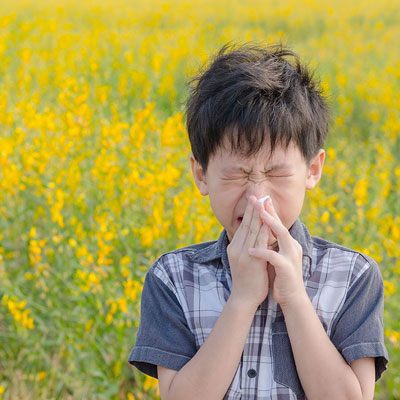Spring Allergies

In the Midwest, allergy season starts as early as March or April when tree pollen begins to “bloom.” Often on the heels of – and overlapping with – tree pollen is grass pollen, which starts in late spring and continues into summer.
What are allergies?
Allergies are hypersensitive immune responses to substances that either enter or come in contact with the body, such as pollen, pet dander, pollen or bee venom. An allergen is a substance that causes an allergic reaction. It can be found in food, drinks or the environment. Seasonal allergies, like other allergies, develop when the body’s immune system becomes sensitized and overreacts to something in the environment that typically causes no problem in most people.
Allergy Treatments
When allergies negatively affect daily activities and health, it’s best to seek medical advice from a family physician. He or she can test for specific allergens, and recommend precise prescriptions to treat the symptoms and the causes. Allergy-Proofing your home is often the first step to treating allergies. Vacuum at least once a week to remove allergens from rugs and furniture. Use a HEPA filter if possible. If you have dust allergies, buy dust-proof mattress covers and pillow-case covers, too. Close windows and doors during peak allergy season. Take off your shoes before you go inside. Wash any clothing that might have come into contact with pollen.
For less severe allergies, there are a variety of treatments for consideration.
- Over the counter (OTC) medications can provide symptom relief. Allergy sufferers may need to try several different options before finding the right allergy medication for their symptoms.
- Herbal Supplements such as green tea can act as natural antihistamines. Sip two cups a day, about 2 weeks before allergy season starts, to help avoid congestion. As with all natural remedies, it’s recommended to check with your doctor before you start herbal treatments.
- Nasal Rinses. Rinsing your nasal passages can help get rid of dust and pollen which trigger allergic reactions. You can use a Neti pot to flush dust and pollen from your nose.


